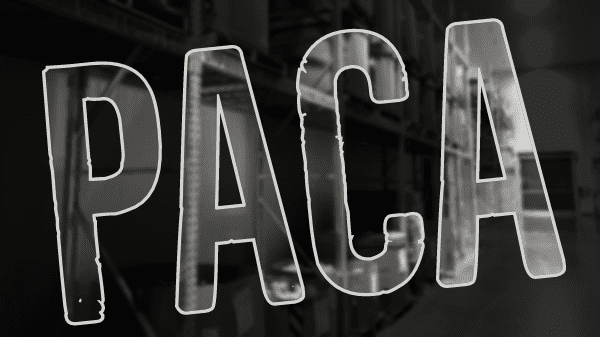Welcome to Blue Book!
Are you ready to join the thousands of companies who rely on Blue Book to drive smarter decisions? View our plans and get started today!
Still have questions? We’d love to show you what Blue Book can do for you. Drop us a line– we’ve been waiting for you.
The Problem: Truck broker denies responsibility for transportation claim.
The Key Point: The expectation within the produce industry is that truck brokers will take responsibility for transportation claims.
The Solution: If a truck broker wants to deny responsibility for claims, it should do so when the shipment is booked, not after a claim arises.
QUESTION: We are a large truck broker with offices throughout the United States. We serve many industries, including the produce industry. Recently we had a claim placed against us involving a rejected load of onions.
We agreed that the carrier failed to use reasonable dispatch, which led to the rejection, and therefore we offered to pay for a portion of the losses. The claimant, however, refused to accept our offer, so now we are denying the claim altogether. Our operating authority is a matter of public record and shows we are a property broker, not a carrier; therefore, we are free to decide whether or not we pay claims. Please explain Blue Book’s position regarding this matter.
ANSWER:
We acknowledge that truck brokers serving other industries generally do not take responsibility for claims unless: (1) the broker holds itself out as a carrier; (2) the broker negligently performs its duties (e.g., fails to confirm that the underlying carrier is adequately insured and licensed); or (3) the broker, either expressly or impliedly, assumes this responsibility by contract (see Freight Claims in Plain English, 4th Edition, by Pezold & Augello, p. 289-290.)
In the fresh produce industry, however, which typically involves smaller trucking firms or owner-operators, this third exception is not an exception at all, but the rule. Industry custom and usage as reflected in Blue Book’s Transportation Guidelines, the North American Produce Transportation Working Group’s Guidelines, and the Dispute Resolution Corporation’s Transportation Rules, all explain that truck brokers are responsible to their customers for carrier claims unless they specifically provide otherwise when the transportation agreement is entered into.
What’s more, we routinely see the most respected and successful truck brokers in the fresh produce industry take responsibility for carrier claims. You suggest that as a broker you can decide whether or not to pay a cargo claim on a case-by-case basis, but we think your customers can fairly ask, “If you’re not going to pay cargo claims, shouldn’t that be communicated at the time the transportation is booked?”
This would seem to prevent a very predictable misunderstanding given expectations held by many (if not all) vendors in the produce industry. We suspect your salespeople would not be eager to tell prospective customers that your firm will not take responsibility for cargo claims before they booked orders; rather we suspect their message suggests, “We’ll take care of you as well or better than the other guys.”
Lastly, we think it’s important to remember that fresh produce is exempted from federal economic regulation (e.g., operating authority, the Carmack Amendment, the Interstate Commerce Act). Therefore, your suggestion that your operating authority as a property broker somehow protects you from liability for produce claims is particularly dubious in the context of a claim involving fresh produce, where this regulatory scheme is not even applicable.
Your questions? Yes, send them in. Legal answers? No, industry knowledgeable answers. If you have questions or would like further information, email tradingassist@bluebookservices.com.




